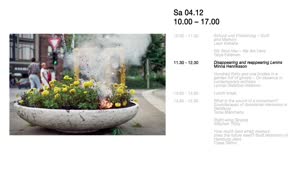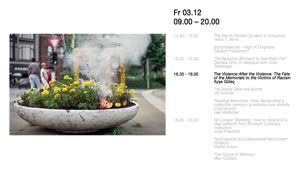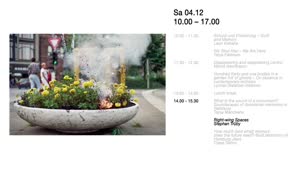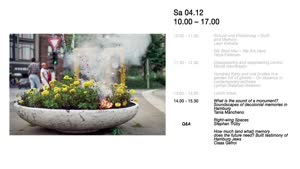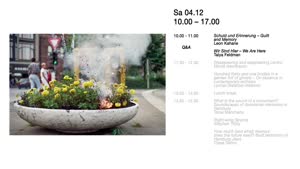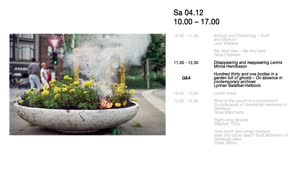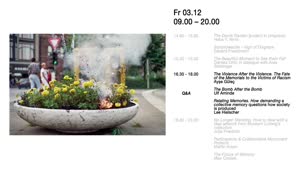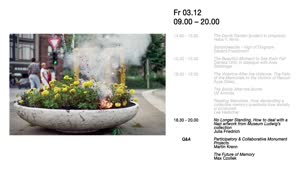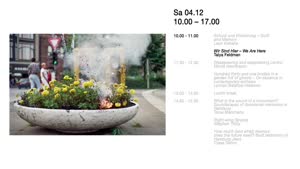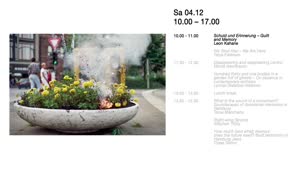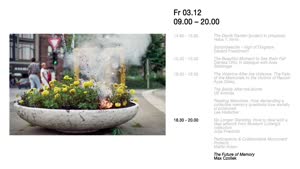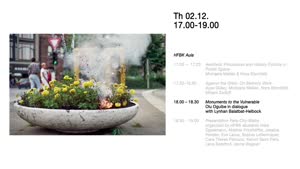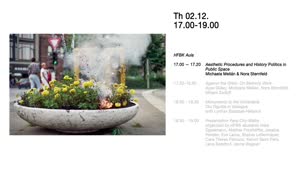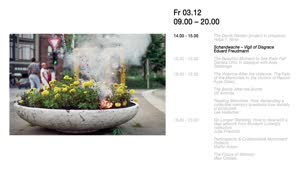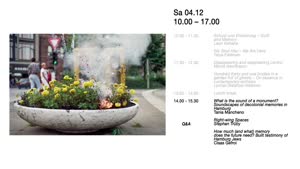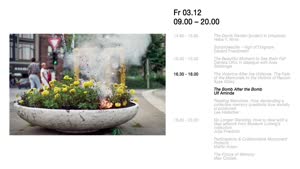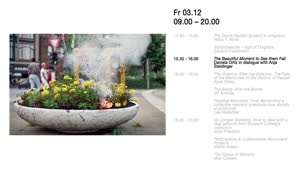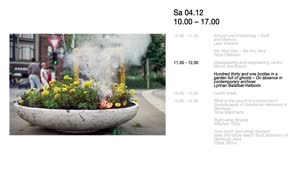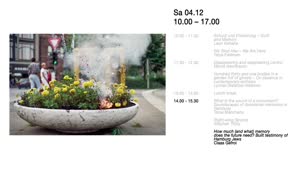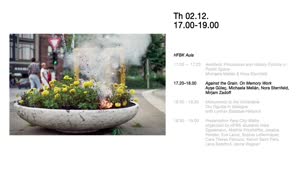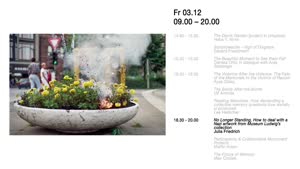Daniela Ortiz in dialogue with Anja Steidinger: The Beautiful Moment to See them Fall - Prof. Michaela Melián, Prof. Dr. Nora Sternfeld - HFBK
- MEDIATHEK
- Alle Videos
- HFBK
- Alle Bereiche
- Conference: Counter-Monuments and Para-Monuments
Alle Videos
Daniela Ortiz in dialogue with Anja Steidinger: The Beautiful Moment to See them Fall
Daniela Ortiz was born in Peru in 1985 and lives and works in Urubamba, Cusco. Through her work, she aims to generate visual narratives in which the concepts of nationality, racialization, social class, and genre are explored in order to critically understand structures of colonial, patriarchal, and capitalist power. Her recent projects and research deal with the European migratory control system, its links to colonialism, and the legal structure created by European institutions in order to inflict violence towards racialized and migrant communities. She has also developed projects about the Peruvian upper class and its exploitative relationship with domestic workers. Recently her artistic practice has turned back into visual and manual work, involving art pieces in ceramic, collage, and in formats such as children’s books in order to take distance from Eurocentric conceptual art aesthetics. Alongside her artistic practice, she is mother to a four-year-old, gives talks and workshops, carries out investigations, and participates in discussions on Europe’s migratory control system and its ties to coloniality in different contexts.
Anja Steidinger (*1972) is Professor of Art Education, Teaching Profession at Elementary School (LAGS) at HFBK Hamburg. She works as an artist at the interface of art, politics, and education. She studied art education and fine arts at the HFBK Hamburg with a focus on photography, video, and installation. From 2006 to 2020 she lived in Barcelona, where she also wrote her dissertation on artistic (self-)representations of unease in the context of the Spanish economic crisis (publication Edition Metzel, Munich 2015). She is co-founder of the Spanish activist artist collective Enmedio and the media education project for children La Maleta del Cine in Barcelona. Her working method, often based on a collaborative output, combines decolonial, anti-discriminatory perspectives with local art projects and develops new spaces for action from artistic intervention as a critical practice.
---
The conference is dedicated to the history of artistic counter-monuments and forms of protest, discusses aesthetics of memory and historical manifestations in public space, and asks about para-monuments for the present.
Programme: https://www.hfbk-hamburg.de/de/projekte/conference-counter-monuments-and-para-monuments-contested-memory-public-space/

